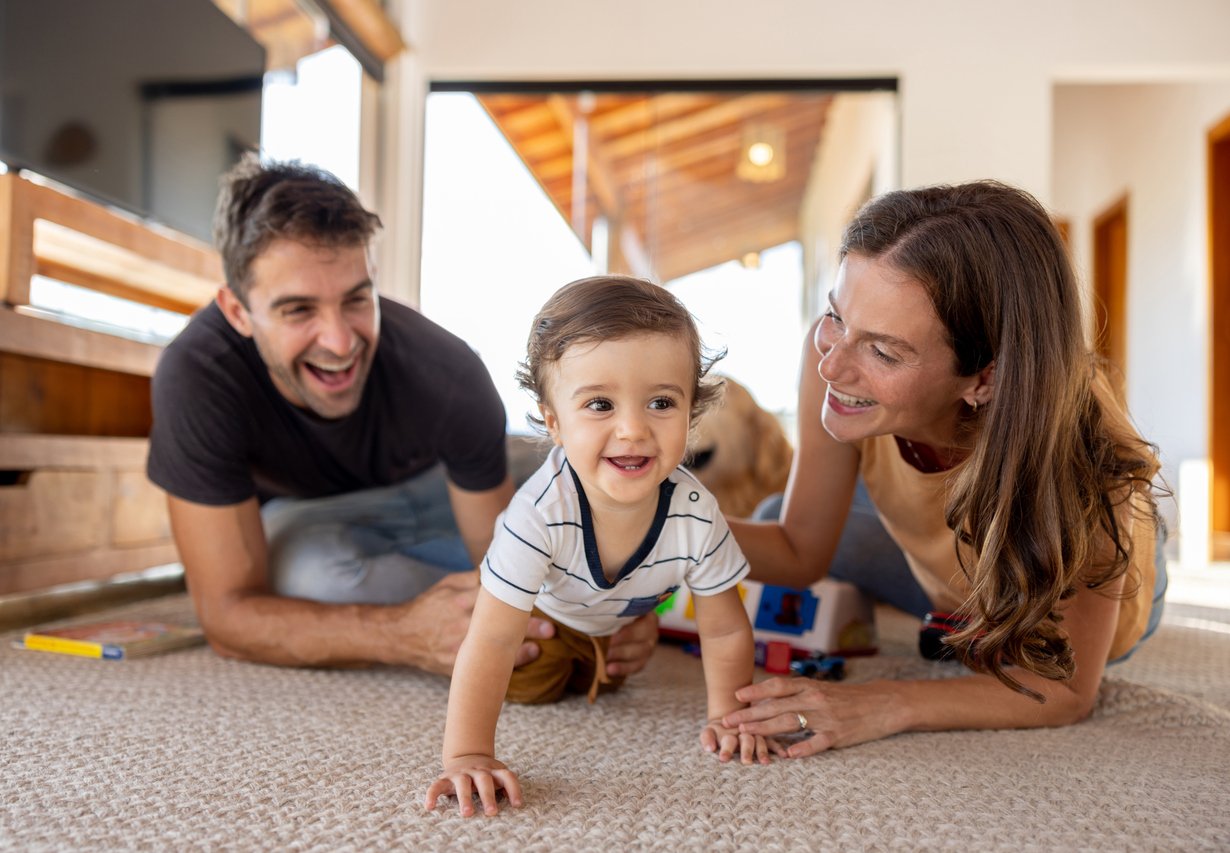
As a parent, you might be eagerly awaiting the day your child says their first words. But did you know that encouraging early movement can play a big role in building language skills, too? Today, we’re going to explain the connection between physical activity and communication skills. We’ll also give you tips to give your child an exciting start in both areas.
Babies Learn Through Moving to Explore Their Environments
Babies are naturally curious, and their movements—whether it’s rolling over, crawling, or walking—are their way of exploring the world. When babies move, they’re developing key skills that lay the groundwork for future learning, including language.
Each new movement they try opens up opportunities for interaction with their surroundings, like reaching for toys, mimicking actions, and responding to voices. And as babies begin to explore more, they’re exposed to new sounds, sights, and experiences that enrich their understanding of language.
Children Who Are More Active Tend to Have Stronger Language Skills
Most people don’t realize that children who are active tend to develop stronger language skills. This is because physical movement stimulates the brain, helping it grow stronger in all areas, especially the areas necessary for speech and language development.
Active play often leads to more opportunities for social interaction, too, which is critical for language growth. Children who run, jump, and play with others are not only exercising their bodies but also practicing communication. Whether they’re asking for a ball, responding to a friend, or following simple instructions, their language skills are being shaped by these active experiences.
Encouraging Your Child to Be Active Can Help Them Develop Stronger Language Skills
Helping your child stay active is not only great for their physical health but also fun and beneficial for the whole family! Incorporating movement into everyday activities gives your child more chances to develop language skills in a natural, engaging way.
Here are some ideas for activities that can boost both physical activity and language development:
Make time for tummy time
While babies are on their tummies, you can encourage them to reach for toys, which strengthens muscles and prompts early communication as you talk about what they’re doing.
Play peek-a-boo & hide-and-seek
These classic games not only get your child moving but also introduce them to new words and concepts, which can help them develop a stronger understanding of language.
Sing action songs
Songs like “Head, Shoulders, Knees, and Toes” and “If You’re Happy and You Know It” combine movement with language, which helps children associate words with body parts and actions.
Play follow the leader
Encourage your child to copy your movements while introducing new words like “jump,” “clap,” or “spin,” since this can help build their vocabulary and motor skills at the same time.
Narrate during activities
When you talk about what you see and do during the day, it gives your child the opportunity to learn new words. This is especially great when combined with physical activities like a walk in the park or climbing on a playground because it helps your child learn new vocabulary in a fun context.
Reach Out to First Steps for Expert Support
If you’re curious about whether your child’s movement and language development are on track, our team at First Steps Pediatric Therapy is here to help! Our expert therapists can evaluate your child’s developmental progress and give them individualized, play-based support.
Call us today at (720) 989-0179 to schedule an evaluation and ensure your child is reaching their full potential!

